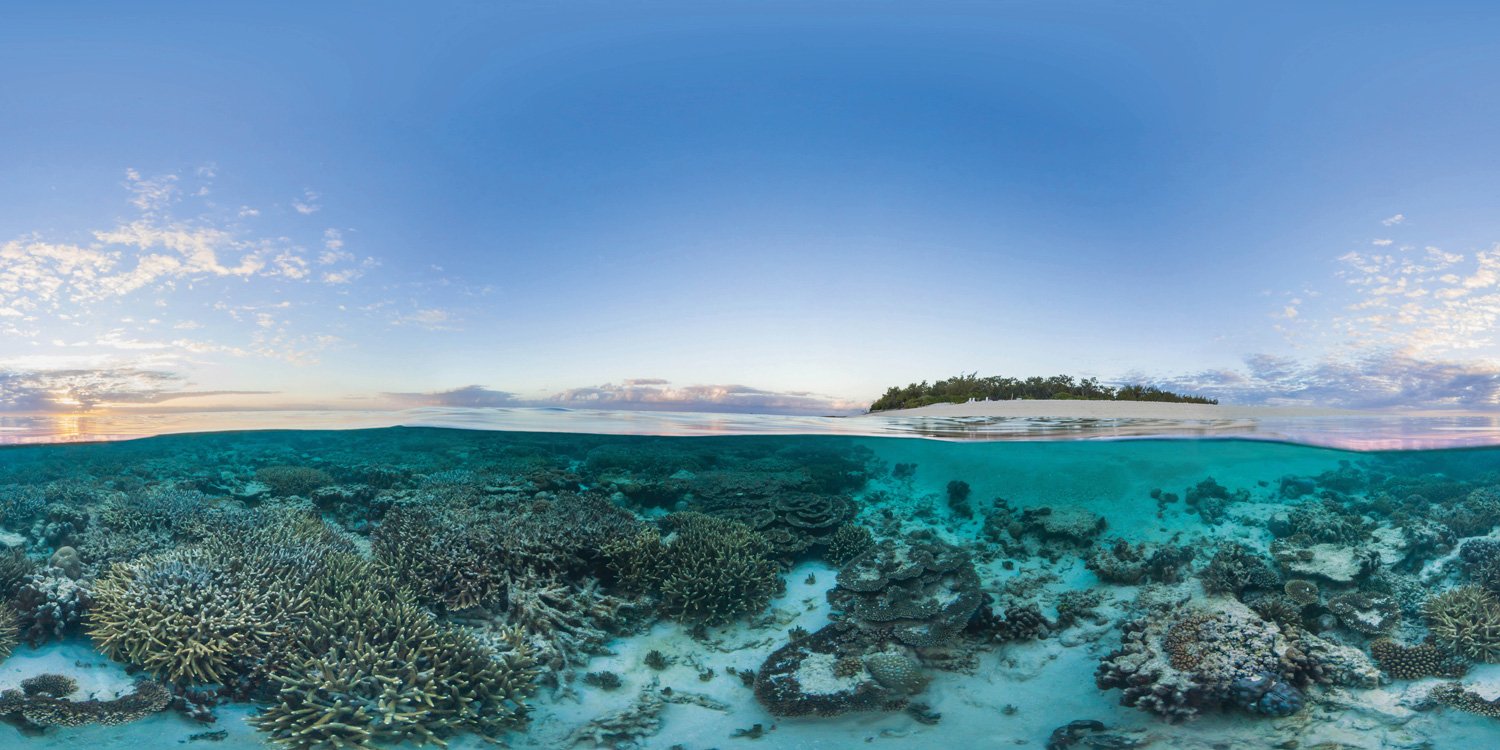
THE IMPACT OF SUNSCREEN ON CORAL REEFS:
A Growing Environmental Concern
FEBRUARY, 10 2024
Coral reefs are among the most diverse and vital ecosystems on the planet, providing habitat and sustenance for a myriad of marine species. However, these magnificent underwater ecosystems face numerous threats, and one lesser-known but significant concern is the impact of sunscreen on coral reefs. This article explores how the chemicals in sunscreen can affect coral reefs and what steps can be taken to protect these fragile ecosystems.
The Chemicals in Sunscreen
Many traditional sunscreens contain a range of chemicals designed to absorb or scatter the harmful ultraviolet (UV) rays from the sun. Two types of ingredients in sunscreen are of particular concern in relation to coral reefs:
Oxybenzone and Octinoxate:
These are common UV-filtering chemicals found in many sunscreens. While effective at protecting the skin from UV rays, they can have detrimental effects on coral reefs. Oxybenzone, in particular, has been shown to disrupt coral's reproduction and growth cycles, leading to coral bleaching.
Nanoparticles:
Some sunscreens contain nanoparticles of zinc oxide or titanium dioxide, which can harm coral reefs when washed off the skin and into the ocean. These nanoparticles can settle on coral and interfere with their ability to photosynthesize and thrive.
The Impact on Coral Reefs
When sunscreen-wearing swimmers and divers enter the ocean, the chemicals from their sunscreen can wash off and disperse into the water. This contamination can have several adverse effects on coral reefs:
Coral Bleaching:
The chemicals in sunscreen, especially oxybenzone, can cause coral bleaching, a phenomenon in which corals expel the symbiotic algae that provide them with colour and nutrients. This weakens the coral and makes them more susceptible to disease and death.
Coral DNA Damage:
Oxybenzone has been linked to coral DNA damage, which can hinder their ability to reproduce and recover from environmental stressors.
Algal Overgrowth:
Sunscreen chemicals can disrupt the balance between corals and the algae that live within their tissues. This can lead to the overgrowth of harmful algae, which can suffocate and kill corals.
Reduced Coral Resilience:
Overall, sunscreen contamination can reduce the resilience of coral reefs in the face of climate change, ocean acidification, and other environmental stressors.
Protecting Coral Reefs
Awareness of the issue is the first step towards protecting coral reefs. Here are some measures that can be taken to minimise the impact of sunscreen on these vital ecosystems:
Choose Reef-Friendly Sunscreen:
Look for sunscreens labelled as "reef-friendly" or "oxybenzone-free." These products use alternative UV filters that are less harmful to coral reefs. Market Organics has a variety of all reef friendly sunscreens!
Wear Protective Clothing:
Consider wearing long-sleeved rash guards and wide-brimmed hats to reduce your reliance on sunscreen when swimming or diving.
Rinse Off Before Entering the Water:
If you must use sunscreen, apply it at least 30 minutes before entering the water to allow it to be absorbed by your skin. Rinse off any excess sunscreen before swimming.
Support Coral Conservation Efforts:
Contribute to organisations and initiatives focused on coral reef conservation and restoration.
Advocate for Reef Protection:
Encourage local governments and tourism operators to promote responsible reef-friendly practices.
In conclusion, the impact of sunscreen on coral reefs is a growing environmental concern. The chemicals in sunscreen, particularly oxybenzone and nanoparticles, can harm these fragile ecosystems by causing coral bleaching, disrupting reproduction, and reducing their resilience. By choosing reef-friendly sunscreen, wearing protective clothing, and supporting conservation efforts, we can take steps to protect and preserve these vital marine environments for future generations.
Maddison Auld
Clinical Naturopath, Herbalist, Nutrition
BHSc Naturopathy, NHAA
@sun.soile.naturopathy





